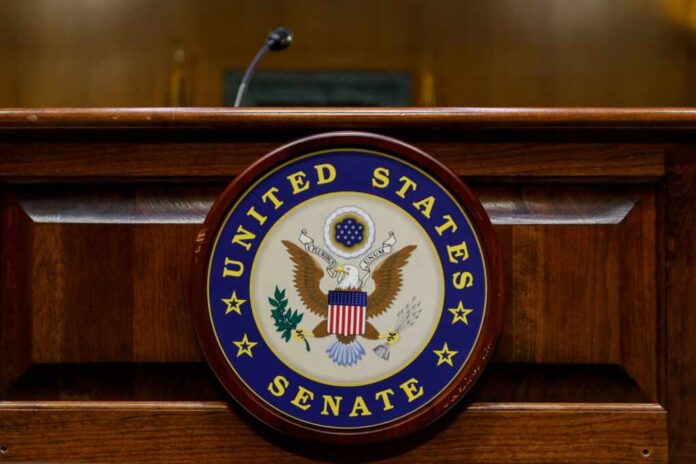
Will the extension of the clean transportation fuel credit help or hinder emerging clean fuel technologies?
At a Glance
- The Republican Senate extends a clean transportation fuel credit through 2029.
- Criticism arises over favoritism towards traditional biofuels and North American feedstocks.
- Environmental advocates worry about impacts on emerging clean fuel technologies.
- Concerns over reduced hydrogen credits potentially hindering next-generation fuel deployment.
Senate’s Move Toward Clean Fuel Credit
The Republican-led Senate recently moved to extend a clean transportation fuel credit until 2029, aligning with former President Trump’s tax policies. While some applaud this extension, others express concern that its configuration primarily benefits traditional biofuel producers. The requirement for North American feedstocks is a key point of contention, potentially overshadowing emerging clean fuel technologies.
Watch a report: What to know about the GOP budget bill and clean energy
Environmental advocacy groups voice concerns over this particular favoritism, fearing it might stifle innovation in cleaner energy sectors. Without incentives for new technologies, there’s a risk the U.S. could fall behind in the global clean fuel market. Rachel Starr from an environmental group stated, “There is an international market for clean fuel, so I think we would be falling behind not to be participating in that.”
Reduced Hydrogen Credits Raise Concerns
Adding to the debate, Senate Republicans have reduced hydrogen credits until 2027. This action further fuels speculation that legislative choices might limit opportunities for deploying next-generation fuels essential for long-term sustainability. Concerns grow as critics argue that these measures prioritize short-term gains from traditional biofuels over long-term advancements in hydrogen and other alternative fuels.
“45Z is still tens of billions of dollars in giveaways to the on-road biofuels industry, which does not need support.” – Rachel Starr.
Political Strife Over Clean Energy Policies
The Senate’s decision extends a wider conflict seen in the House of Representatives, where Republicans have introduced a bill to dissolve Democrats’ clean energy tax credits. Some moderates in the party hope Senate Republicans will ease rollbacks that could harm investments in burgeoning clean energy sectors.
Senate passed budget bill 51-50 today — which extends 45Z through 2029 and, in future years, restricts eligibility to North American feedstocks and cuts multiplier for sustainable aviation fuel
Bill now heads to House pic.twitter.com/CPucwhQERg
— Cole Martin (@cole_n_martin) July 1, 2025
The current legislative climate sets up a confrontation in the House, where conservatives and moderates clash on clean energy incentives. Democrats argue these Republican moves could raise energy prices and destroy jobs, thus affecting thousands of American workers. The larger debate hinges on whether the clean fuel credit extension can drive innovation or maintain the status quo.

























